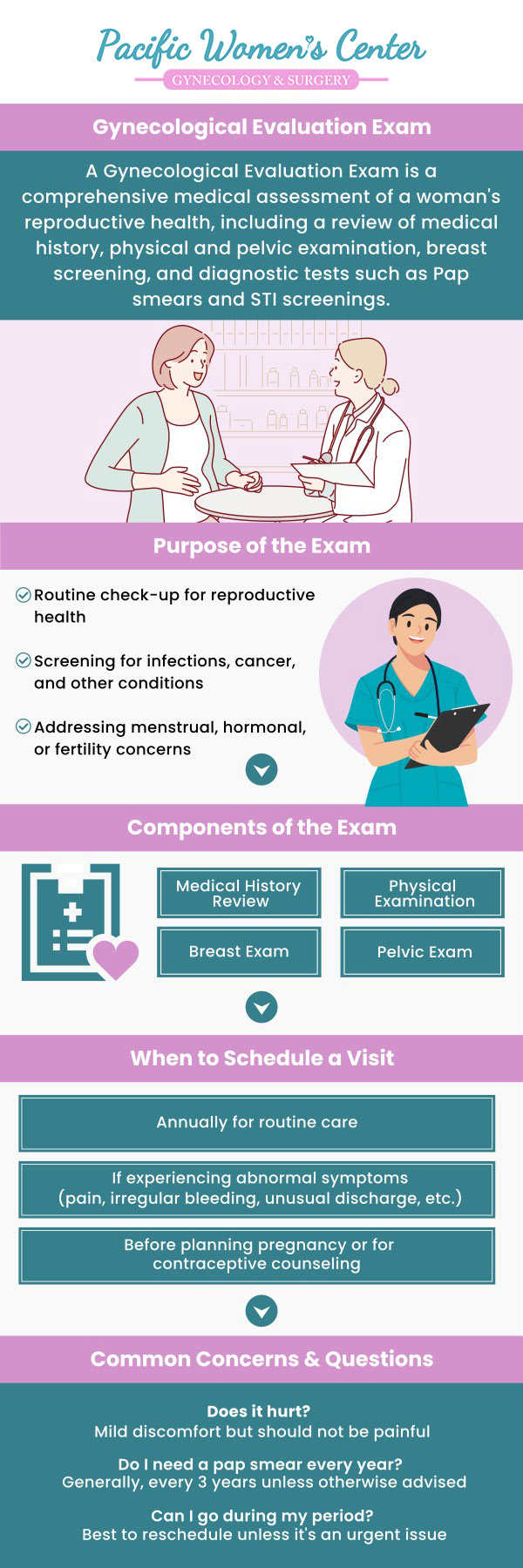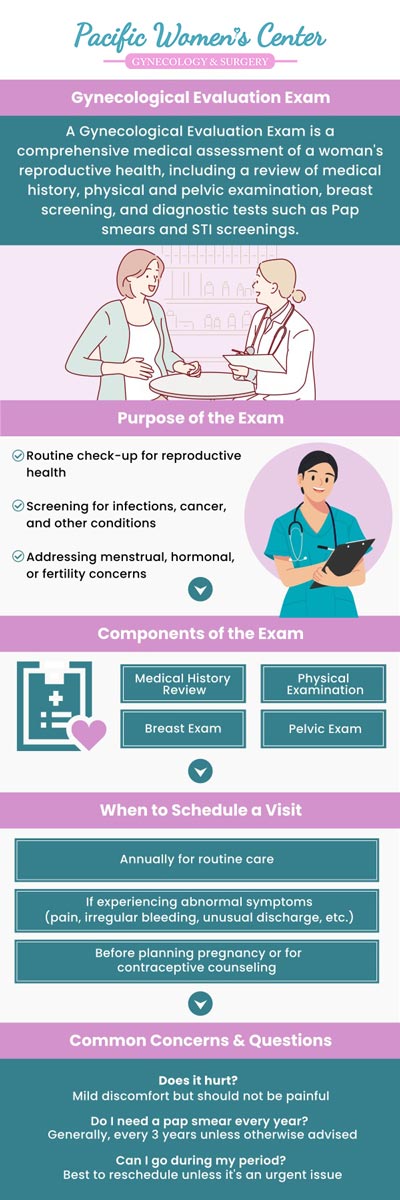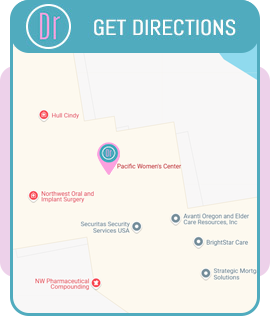Evaluation Exam Specialist in Eugene, OR
A gynecological evaluation exam is a thorough examination conducted by a medical specialist to diagnose and maintain women’s health. This examination usually involves a pelvic exam, pap smears, a breast exam, and a discussion of reproductive problems. The benefits include taking appropriate action for potential issues such as cervical and breast abnormalities, which enables prompt treatment. Regular exams help to improve overall health for women. At Pacific Women’s Center, where Dr. Richard Beyerlein MD, CPI, FACOG, and Tamara A. Stenshoel, MD, FACOG, offer evaluation exams. For more information, Contact us or schedule an appointment online. We are conveniently located at 911 Country Club Rd. Suite 222, Eugene, OR 97401.




Table of Contents:
What does a gynecological exam include?
What are the symptoms of gynecological diseases?
Is a gynecological exam the same as a pap smear?
How often should female patients have a gynecological exam?
A gynecological exam, also known as a pelvic exam, is used to check the health of female reproductive organs. This exam is typically performed as a part of a wellness check-up or if certain symptoms, such as pelvic pain, abnormal bleeding, or abnormal discharge, occur.
During the exam, the gynecologist looks at the vagina, vulva, and cervix to check for abnormalities. In addition, lab tests are often included in a gynecological exam to screen for infections and other conditions. Furthermore, the healthcare provider may perform a breast exam to check for abnormal lumps.
In some cases, a pap smear is recommended during a gynecological exam. These screenings are performed to check for abnormal cells in the cervix. The doctor will let you know if it’s time for a pap smear. During this appointment, the doctor will also review your personal and family medical history to determine if you have any risk factors. They can also discuss pregnancy, family planning, menopause, healthy aging, or any specific concerns or questions that you have. Overall, a gynecological exam involves a physical exam as well as an open and honest discussion about your reproductive health.
Some of the warning signs of gynecological diseases include:
● Bleeding between periods.
● Irregular, heavy, or extremely painful periods.
● Bleeding after menopause.
● Increased vaginal discharge.
● Vaginal discharge with a strange color or smell.
● Chronic pelvic pain.
● Lumps or sores around the genitals.
● Burning, itching, irritation, or swelling around the genitals.
● Pain during intercourse.
● Pain or pressure in the pelvis that’s different from menstrual cramps.
● Frequent need to urinate, excessive urination, or pain during urination.
● Loss of bladder control.
● Excessive bloating.
If you experience one or more of these symptoms, you should see a women’s health specialist promptly. The experts at Pacific Women’s Center are skilled at addressing these concerns comprehensively to alleviate your discomfort as quickly as possible. By addressing symptoms early, you can prevent your condition from worsening, causing complications, or significantly interfering with your day-to-day life.
No, a gynecological exam is not the same as a Pap smear. Although a Pap smear, also known as a Pap test, can sometimes be included in your gynecological exam, this procedure is not performed every time. Pap tests are done every one to three years to screen for abnormal cervical cells.
On the other hand, a gynecological exam involves an assessment of the reproductive organs and is typically recommended on an annual basis. This appointment provides an opportunity to ask the specialist questions about fertility, menstruation, and menopause.
Overall, while a pap smear can be included in a gynecological exam, it is only one part of this wellness check-up. During your gynecological exam, the doctor will let you know how regularly it’s recommended for you to receive Pap tests.
The frequency at which you should receive gynecological exams varies depending on your medical history, your age, and whether you have symptoms. Your gynecologist will provide recommendations on how often to schedule your visits by assessing what risk factors you have.
If you are generally healthy and have minimal risk factors, you may not need to come in for pelvic exams frequently. However, those with a personal or family history of certain conditions are advised to come in for a wellness check-up on an annual basis.
In addition, if you have symptoms of gynecological disease, you should see a women’s health specialist promptly. Gynecologists perform pelvic exams to evaluate your symptoms and establish a diagnosis. Overall, how frequently you’ll need to see the gynecologist depends on your unique circumstances.
To find out how to take care of your reproductive health well, schedule an appointment with one of the specialist at Pacific Women’s Center. Our dedicated team is here to provide you with comprehensive care to enhance your health and wellness. For more information, contact us or schedule an appointment online. We are conveniently located at 911 Country Club Rd. Suite 222, Eugene, OR 97401. We serve patients from Eugene OR, Springfield OR, Coburg OR, Creswell OR, Cottage Grove OR, Lowell OR, Junction City OR, and surrounding areas.

ADDITIONAL SERVICES YOU MAY NEED
❱ Abdominal Hysterectomy
❱ Bladder Lift Surgeon Q&A
❱ Cervical Cone Biopsy
❱ Colposcopy
❱ Endometrial Ablation
❱ Endometrial Biopsy
❱ Female Sexual Dysfunction
❱ Gynecological Surgery
❱ Gynecology
❱ Hormone Therapy
❱ Vaginal Hysterectomy
❱ Endometriosis Diagnosis & Care



